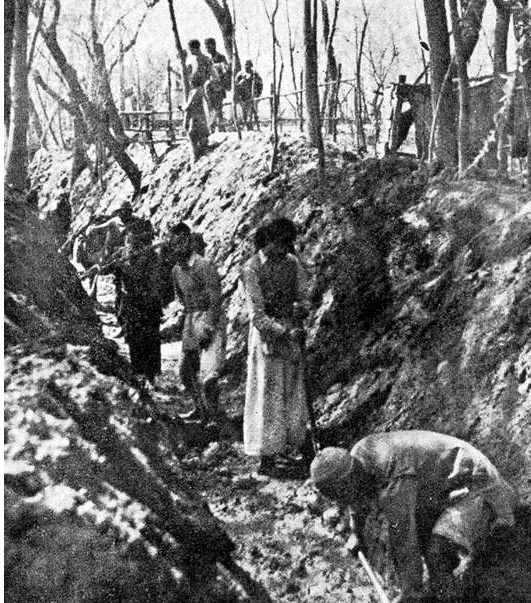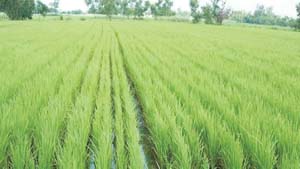Food and Nutrition
Managing natural resources through simple and appropriate technological interventions for sustainable mountain development - Current Science (2011)
Posted on 30 Dec, 2011 10:07 AMThe initiative on management of natural resources through appropriate interventions aimed at:
Agriculture, food security and nutrition in Vidarbha: Household level analysis – A special article in EPW
Posted on 27 Dec, 2011 09:43 AMUsing the data generated from a baseline survey on a sample of 6,990 households covering six districts, this paper attempts to assess the relationships between agriculture, food security and nutrition for children, adolescents and married women of reproductive age.
Strengthening rural livelihoods – A report by IDRC
Posted on 13 Dec, 2011 05:17 PM This report prepared by International Development Research Centre (IDRC) examines how information related constraints in poor rural areas are being overcome and how information technology is being employed to the benefit of people in South Asia.
This report prepared by International Development Research Centre (IDRC) examines how information related constraints in poor rural areas are being overcome and how information technology is being employed to the benefit of people in South Asia.
Poor people are constrained by limited access to information and poor communications technology. The research looked at the use of ‘information communications technologies’ (ICTs) in providing agricultural extension services, getting timely market price information, finding out about rural wage labour opportunities, helping rural communities to build a sustainable asset base and understanding crop diseases and soil nutrition.
The results of the research bring together rigorously tested practices and methods of applying ICTs for improving rural livelihoods. Each research study has investigated how and to what extent a specific ICT intervention made a difference. Together it shows how ICTs have empowered rural people and transformed livelihoods in agriculture: by filling information gaps, raising awareness, building skills and extending social networks.
The focus was on agricultural communities, as Asia’s poor and middle-income countries have primarily agriculture-based economies. However, a broader ‘livelihoods’ approach has been taken to ensure that we observe the variety of ways ICTs can have an effect on rural communities. The scope of the research took into account the range of on-farm and off-farm productive and reproductive activities that support farming households and communities.
Performance audit of food security schemes in Orissa and Uttar Pradesh – A report by Centre for Environment and Food Security
Posted on 13 Dec, 2011 04:55 PMThe schemes covered under this audit include, (a) Public Distribution System (PDS), (b) Antyodaya Anna Yojana (AAY), (c) Mid-day Meals (MDM), (d) Integrated Child Development Services (ICDS), (e) National Old Age Pension Scheme (NOAPS), (f) National Family Benefit Scheme (NFBS), (g) Annapurna, (h) National Maternity Benefit Scheme (NMBS), (i) Swarnajayanti Gram Swarozgar Yojana (SGSY), and (j) National Rural Employment Guarantee Scheme (NREGS).
Comparative management performance of government and farmer managed irrigation systems in Kashmir
Posted on 04 Dec, 2011 11:49 AMKashmir was originally home to an elaborate network of farmer owned and managed canal based irrigation systems. Gradually, with the increase in planned development, several irrigation canals were taken under the control of the irrigation department. This paper compares the management of irrigation systems by farmers and government.

Ajunhi kordech aad (The wells are still dry) - An article in marathi - Anubhav magazine
Posted on 03 Dec, 2011 11:53 AMA large part of the state of Maharashtra continues to face acute scarcity of water due to scanty rainfall, which has had a serious impact on the livelihoods of people who live in these areas. This article "Ajuni Kordech Aad" meaning "The wells are still dry" published in the magazine Anubhav highlights the extreme hardships, lack of employment opportunities, forced migration due to negative impact on agriculture and livestock, and poverty and deprivation that people living in these areas have to face due to this water scarcity.
Gravity based spring water supply systems in Andhra Pradesh: Lessons and steps towards the future
Posted on 22 Nov, 2011 07:35 AMGuest post by – Rahul Bakare, Arghyam
This article details an example where local knowledge has been used to develop access to safe water in the tribal areas of the Eastern Ghats in Andhra Pradesh
Zero tillage in the rice-wheat systems of the Indo-Gangetic plains - A review of impacts and sustainability implications by IFPRI
Posted on 31 Oct, 2011 06:49 PM This paper by the International Food Policy Research Institute (IFPRI) reviews the success of zero-tillage wheat in the rice-wheat systems of the Indo-Gange
This paper by the International Food Policy Research Institute (IFPRI) reviews the success of zero-tillage wheat in the rice-wheat systems of the Indo-Gange
New hope for Indian food security? The System of Rice Intensification – A paper by International Institute for Environment and Development
Posted on 29 Oct, 2011 11:43 AMThis paper from the gatekeeper series of the International Institute for Environment and Development (IIED) describes the potential of an innovative rice cultivation practice-the system of rice intensification (SRI)—for allowing Indian rice farmers to not only enhance rice production and their net incomes, but also to solve the water crisis.
Climate change impact on hill agriculture and farmers adaptive strategies – A case study of Kullu valley in Himachal Pradesh
Posted on 26 Oct, 2011 06:35 PMIt takes apple as an indicator crop to investigate the positive and negative effects of climate change on farm economy. The research is a field study to determine the agricultural and socioeconomic impact of climate change on the farmers apple economy of the Kullu valley in Himachal Pradesh, India.



